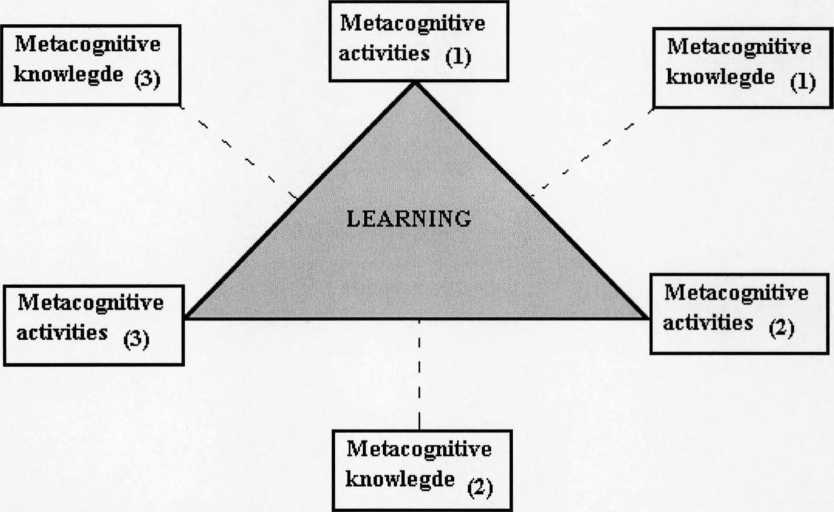learner, the beliefs about language and language learning and the beliefs about the
procedures to carry out learning processes. The difference between the rectangles (1), (2)
and (3) suggests a possible sequence of contents. Thus, the content of metacognitive
knowledge (1) may refer to issues of person knowledge; the content of (2) may deal with
task knowledge and finally, (3) can involve awareness on strategic knowledge. These
awareness stages may require the inclusion of some information about language in general,
language and culture, the target language, descriptive metalanguage, theory(ies) of language
learning, and specifically information on metacognitive strategies.

LEARNING TO LEARN
Fig. 3.4 Learning and learning to learn, an integrated approach
Metacognitive activities refer to learning activities. They basically consist of
planning, monitoring and evaluation, but the numbers do not correspond to each one of
them. Experience has taught me that they neither occur in this order nor can they be
separated from the others. In fact, my purpose for including three moments of metacognitive
activities is to be able to explain the strong interrelation between the two kinds of elements,
62
More intriguing information
1. The name is absent2. Changing spatial planning systems and the role of the regional government level; Comparing the Netherlands, Flanders and England
3. The name is absent
4. What should educational research do, and how should it do it? A response to “Will a clinical approach make educational research more relevant to practice” by Jacquelien Bulterman-Bos
5. Reconsidering the value of pupil attitudes to studying post-16: a caution for Paul Croll
6. The name is absent
7. Wounds and reinscriptions: schools, sexualities and performative subjects
8. STIMULATING COOPERATION AMONG FARMERS IN A POST-SOCIALIST ECONOMY: LESSONS FROM A PUBLIC-PRIVATE MARKETING PARTNERSHIP IN POLAND
9. GENE EXPRESSION AND ITS DISCONTENTS Developmental disorders as dysfunctions of epigenetic cognition
10. Insecure Property Rights and Growth: The Roles of Appropriation Costs, Wealth Effects, and Heterogeneity